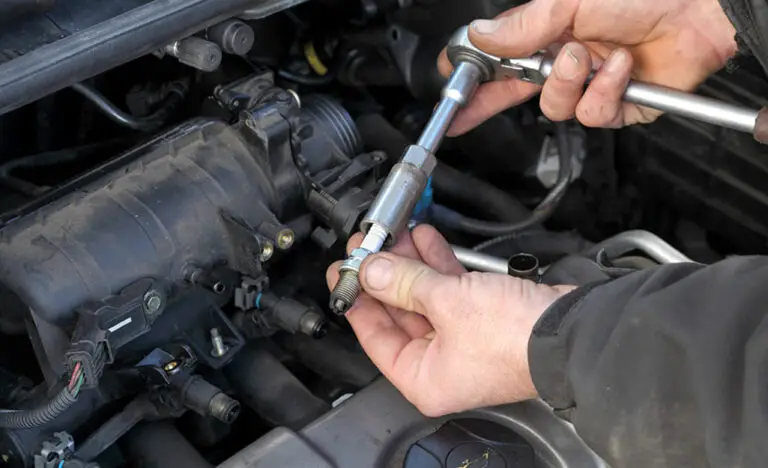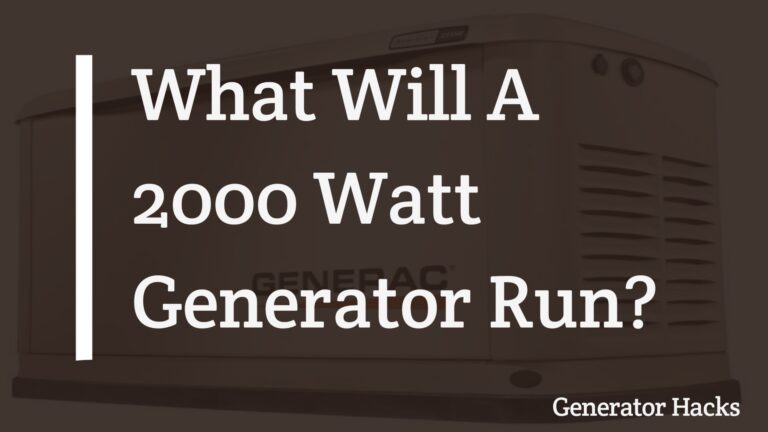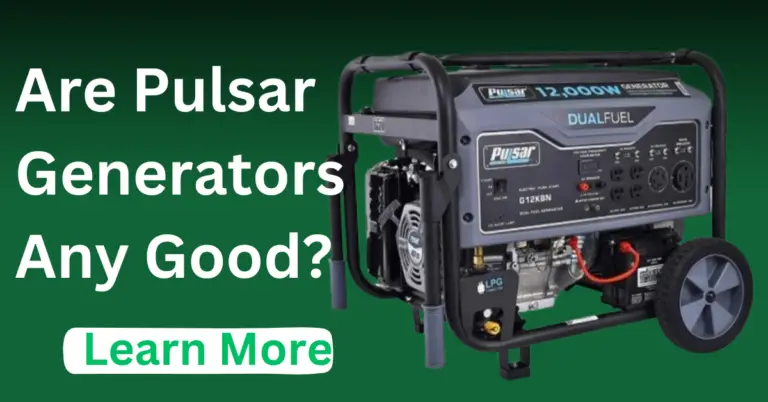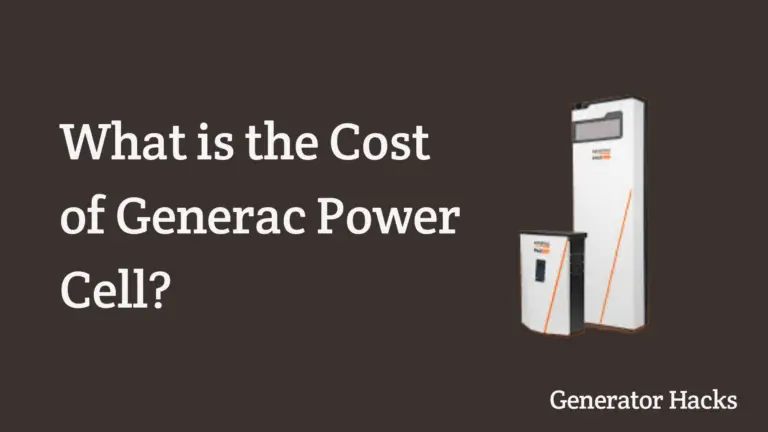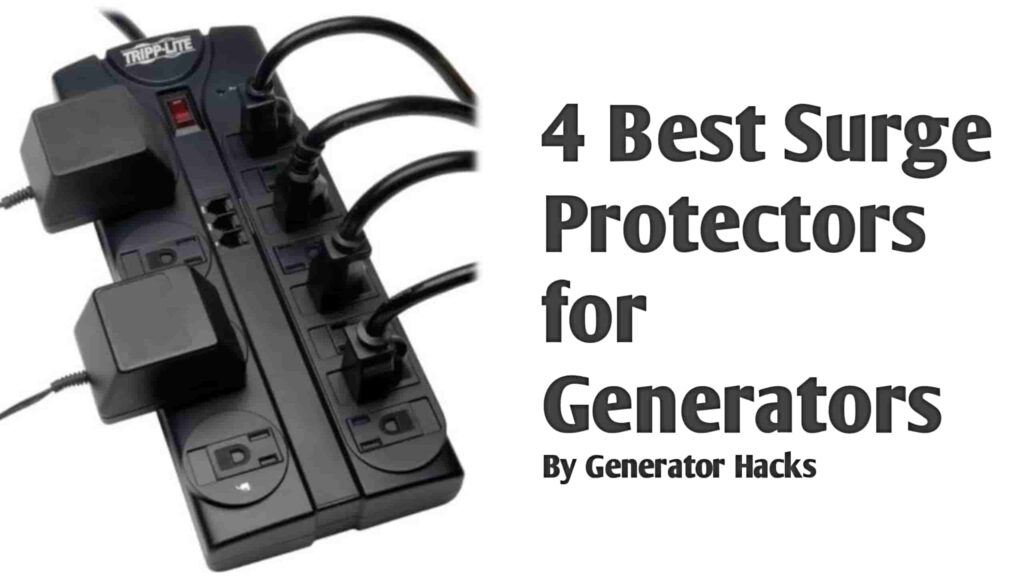As an Amazon Associate, we earn from qualifying purchases. This does not affect the price you pay or the quality of the products you buy. For more information, please read the full affiliate disclosure here.
Are generators safe for electronics? Yes, they are safe for electronics, but it depends on the kind of generator you are using and how you are using them. Now the question is what kind of generator is safe for electronics?
In a power outage or when there’s no electricity, generators can be a lifesaver. It can be used to power our equipment, charge our phones and even run some appliances in our homes and business.
But unfortunately, not all generators are safe for electronics. Some generators produce unstable electricity, which can cause damage to sensitive electronics such as computers, TVs, and smartphones.
Therefore, you must choose the right type of generator that can provide you with clean and stable electricity to power your electronic devices safely.
Hence, in this article, we will discuss what kind of generator is safe for electronics and tips for using generators with electronics even if they produce unstable electricity.
Understanding Electricity in Generators
Before we delve into the details of generators, it is important to have a basic understanding of how electricity is generated using generators. But what is electricity?
Electricity is the flow of electric charge through a conductor, such as a wire. The unit of electric charge is the coulomb, and the rate at which electric charge flows is measured in amperes or amps.
The voltage is the force that drives the electric charge, and it is measured in volts. The product of voltage and current is the power, which is measured in watts.
Electricity is supplied to homes and buildings through the power grid, which is a complex system of generators, transformers, and transmission lines.
The power grid supplies electricity at a constant voltage and frequency, which is 120 volts and 60 Hertz in the United States.
However, not all generators can provide the same quality of electricity as the power grid. Generators produce electricity by burning fossil fuels or through other means, such as solar panels or wind turbines.
The quality of the electricity produced by a generator depends on several factors, such as the type of fuel used, the type of generator, and the load on the generator.
Types of Generators
There are two main types of generators: conventional generators and inverter generators.
1. Conventional Generators
Conventional generators are known as the most common type of generators. They are also known as non-inverter generators.
Conventional generators use a mechanical alternator to generate electricity. The alternator produces electricity by spinning a rotor inside a stator, which creates a magnetic field that induces an electrical current in the stator windings.
They also produce electricity at a fixed voltage and frequency, which depends on the speed of the engine that drives the alternator.
The voltage and frequency of the electricity produced by a conventional generator depend on the load on the generator.
And also, the voltage and frequency fluctuate if the engine speed changes due to other things such as a change in the fuel supply or engine load.
2. Inverter Generators
Secondly, we have the inverter generators. Inverter generators are a newer type of generator that is designed to produce stable and clean electricity.
They use a different technology than conventional generators. Instead of using a mechanical alternator, inverter generators use electronic circuits to convert DC power into AC power.
Inverter generators produce electricity at a stable voltage and frequency, which is independent of the load on the generator or the engine speed.
They use a microprocessor to monitor the load on the generator and adjust the engine speed and power output accordingly. This results in a stable and clean power output, which is safe for electronic devices.
Furthermore, inverter generators are also more fuel-efficient than conventional generators. You can adjust the engine speed and power output based on the load, which results in less fuel consumption and lower emissions.
Which Generator is Safe for Electronics?
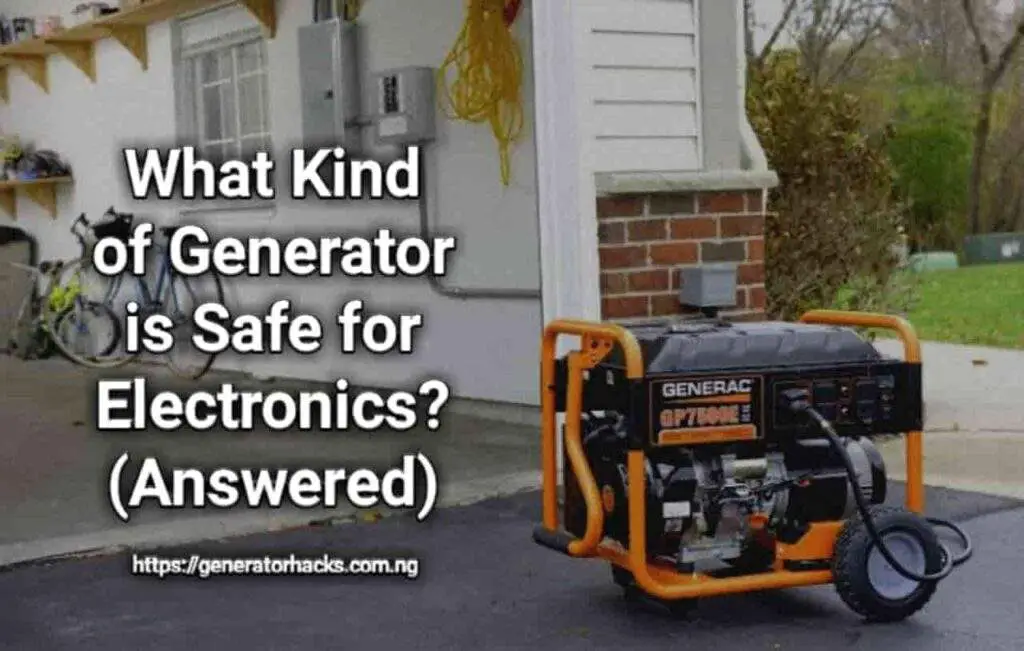
Now that we have discussed the two main types of generators, let us focus on which kind of generator is safe for electronics. The answer is simple: inverter generators are the kind of generators that are safe for electronics.
That’s because the voltage and frequency of the electricity produced by an inverter generator are stable and do not fluctuate, even under varying loads, unlike conventional generators.
As a result, inverter generators use advanced electronic circuits that can adjust the engine speed and power output based on the load, resulting in a constant voltage and frequency.
On the other hand, conventional generators produce unstable electricity that can damage electronic devices as we said before.
The voltage and frequency of the electricity produced by a conventional generator usually depend on the load of the generator or the engine speed.
This can cause fluctuations in the electricity that can harm sensitive electronic devices such as computers, TVs, and smartphones.
Moreover, inverter generators have a lower Total Harmonic Distortion (THD) than conventional generators.
Total Harmonic Distortion also known as THD is a measure of the quality of the electricity produced by a generator.
The lower the THD, the cleaner and more stable the electricity produced by the generator.
Inverter generators typically have a THD of less than 3%, while conventional generators can have a THD of up to 15%.
THD can cause electrical noise, which can affect the performance of electronic devices. And electrical noise can result in static or interference in audio and video signals, slow internet connections, and other issues with electronic devices.
Therefore we concluded that if you’d want your electronics to be safe, inverter generators are the best to go for because they produce cleaner electricity and have lower THD, which in turn reduces the likelihood of electrical noise and other issues with electronic devices.
Tips for Using Either Conventional Or Inverter Generators With Electronics
While inverter generators are safe for electronic devices, there are still some precautions you should take when using a generator with electronics.
Here are some tips to help you use a generator safely with your electronic devices:
1. Choose the Right Generator: Make sure to choose an inverter generator that has enough capacity to power your electronic devices.
You can check the wattage of the devices you plan to use, is the generator you plan using has more watts than the device and can provide enough power to run them?
2. Use a Surge Protector: Use surge protectors (Affiliate Link) to protect your electronic devices from power surges and other electrical disturbances.
When you use surge protectors; they can help absorb excess voltage and prevent it from reaching your devices.
3. Ground the Generator Properly: A properly grounded generator would prevent electrical shock and other safety hazards. To know if your generator is properly ground, you can check your manuals, or likely check if the generator is moving.
4. Keep the Generator Away from Your Home: Lastly, place the generator outside your home or building to prevent carbon monoxide poisoning and other safety hazards.
Generators produce carbon monoxide, which can be deadly if it accumulates in an enclosed space, so make sure they are far away from your home.
You Can Also Read: How to Prevent Carbon Monoxide Poisoning From Generators
Final Thought
Inverter generators are the safest type of generators for electronic devices. They produce stable and clean electricity, which is safe for all electronic devices.
And also, they have a lower THD than conventional generators, which reduces the likelihood of electrical noise and other issues with electronic devices.
But if you don’t have an inverter generator to use with your electronic devices, you can make sure to choose the right generator, use a surge protector, ground the generator, and keep the generator away from your home or building.
